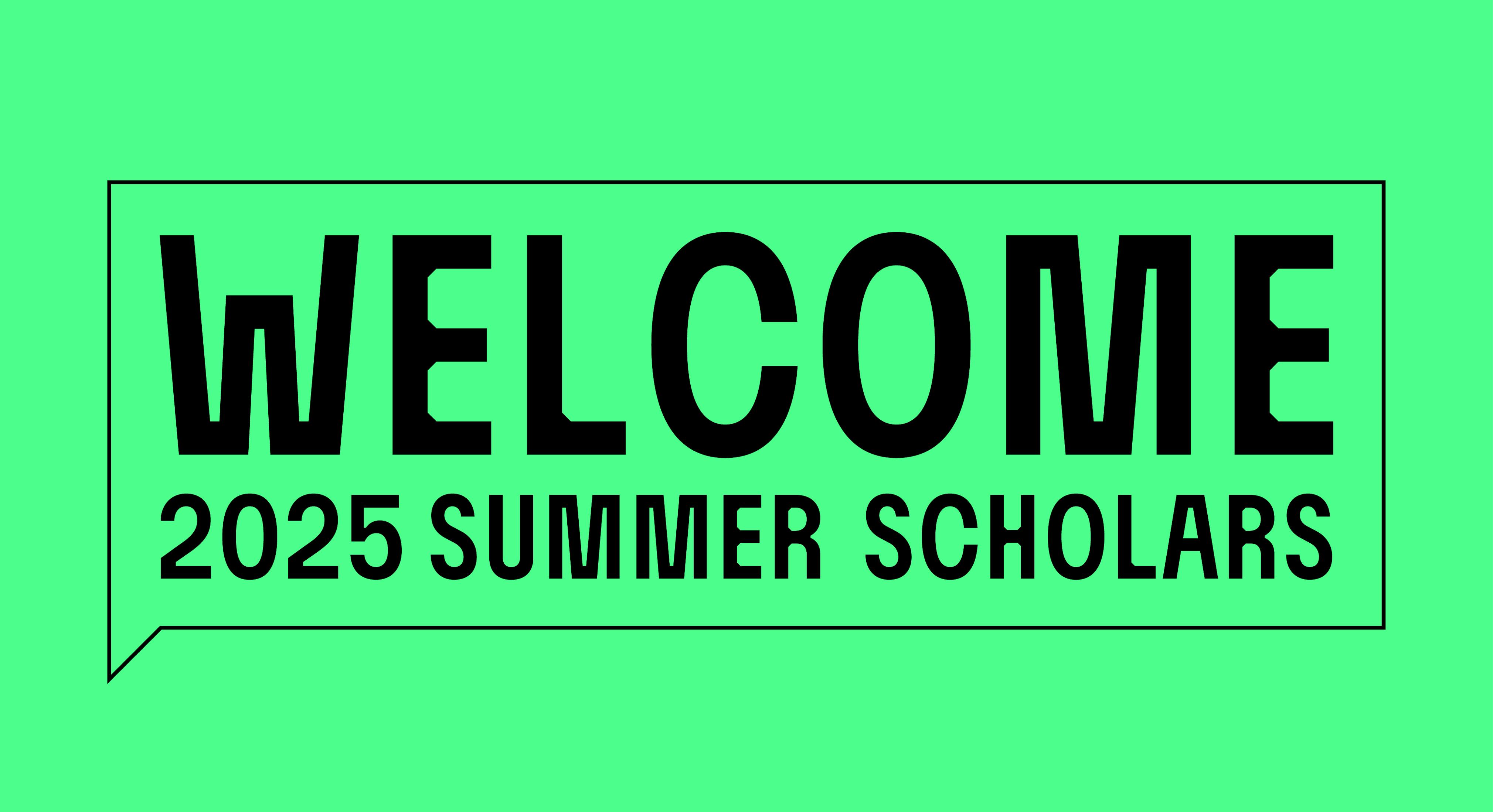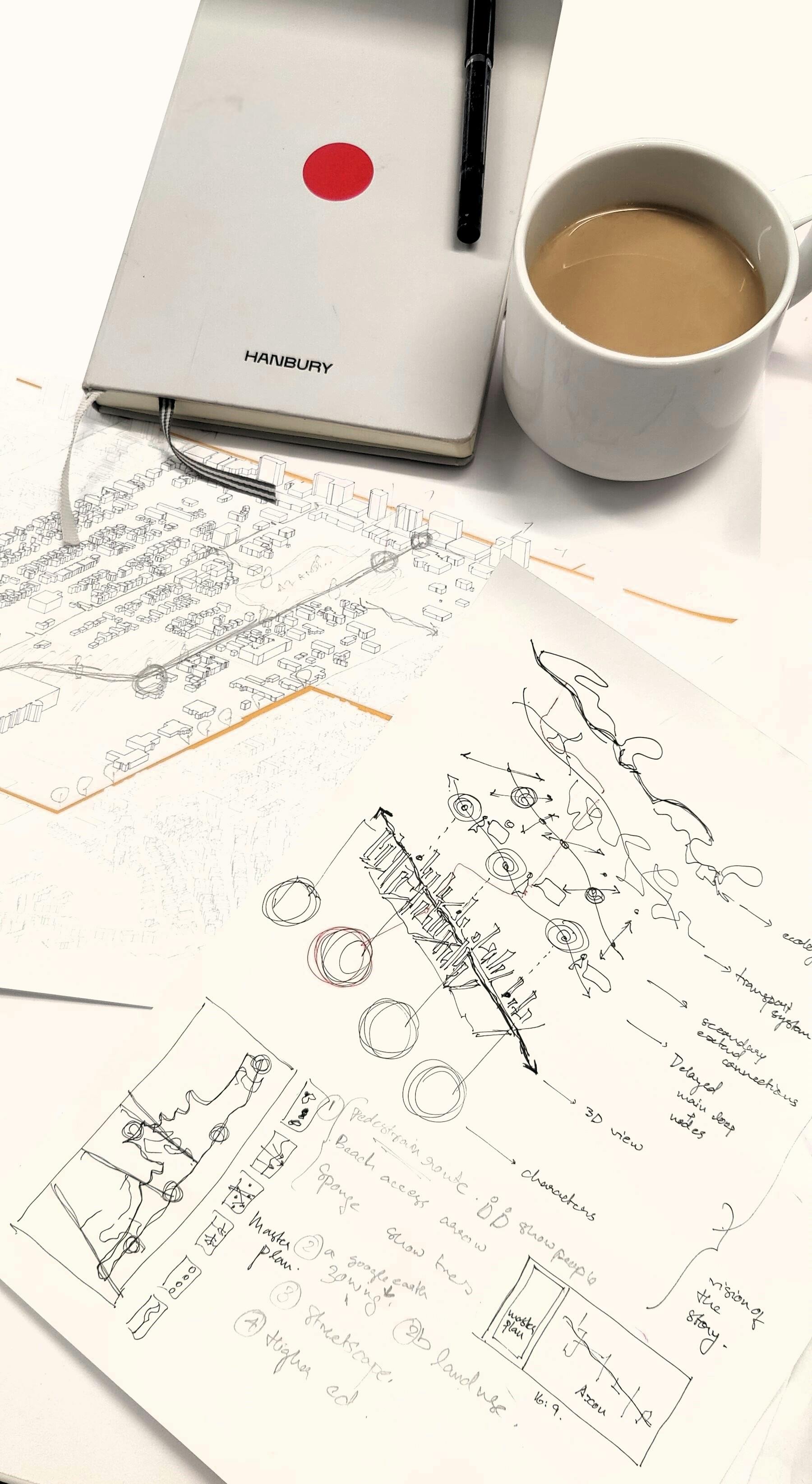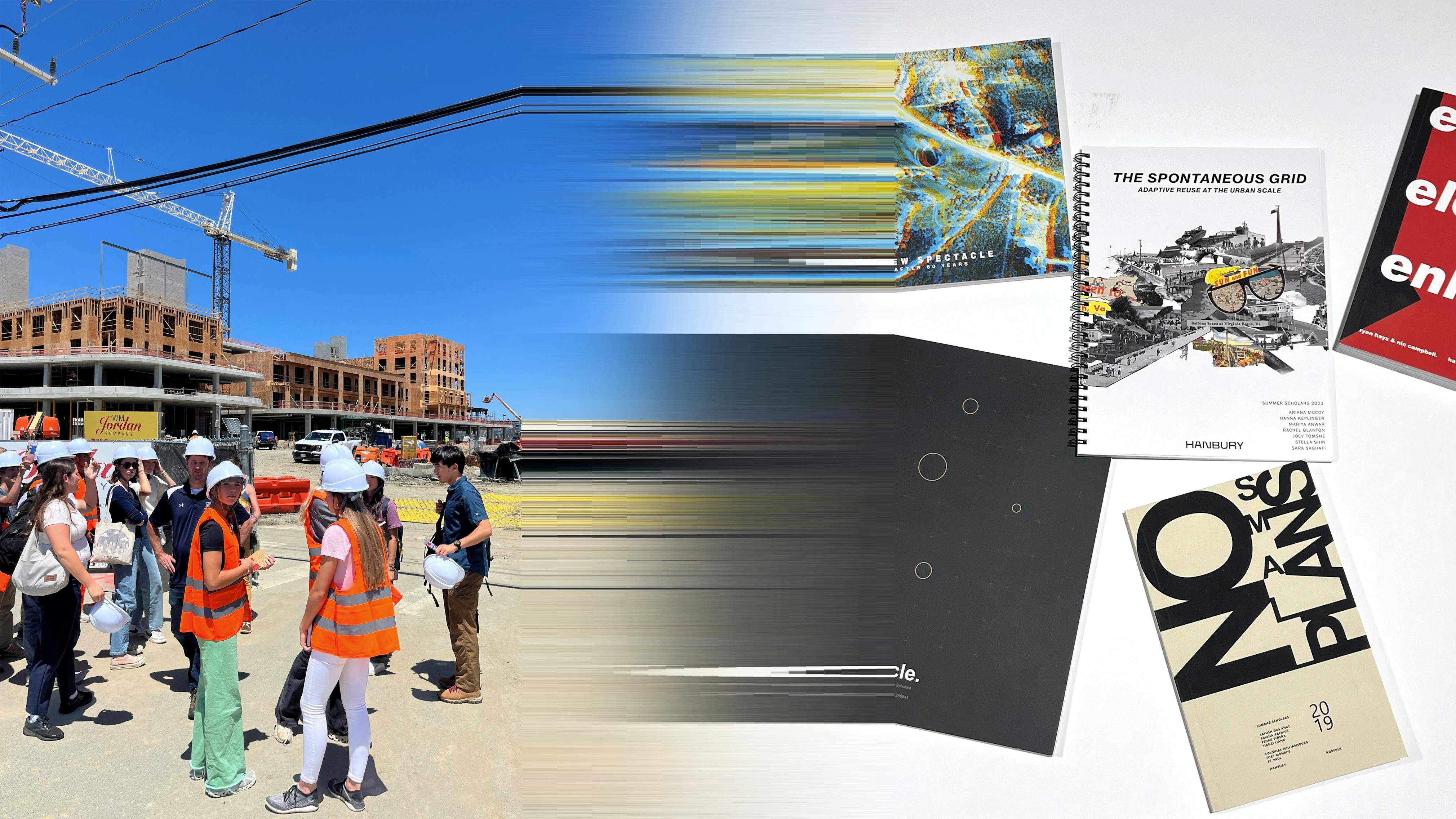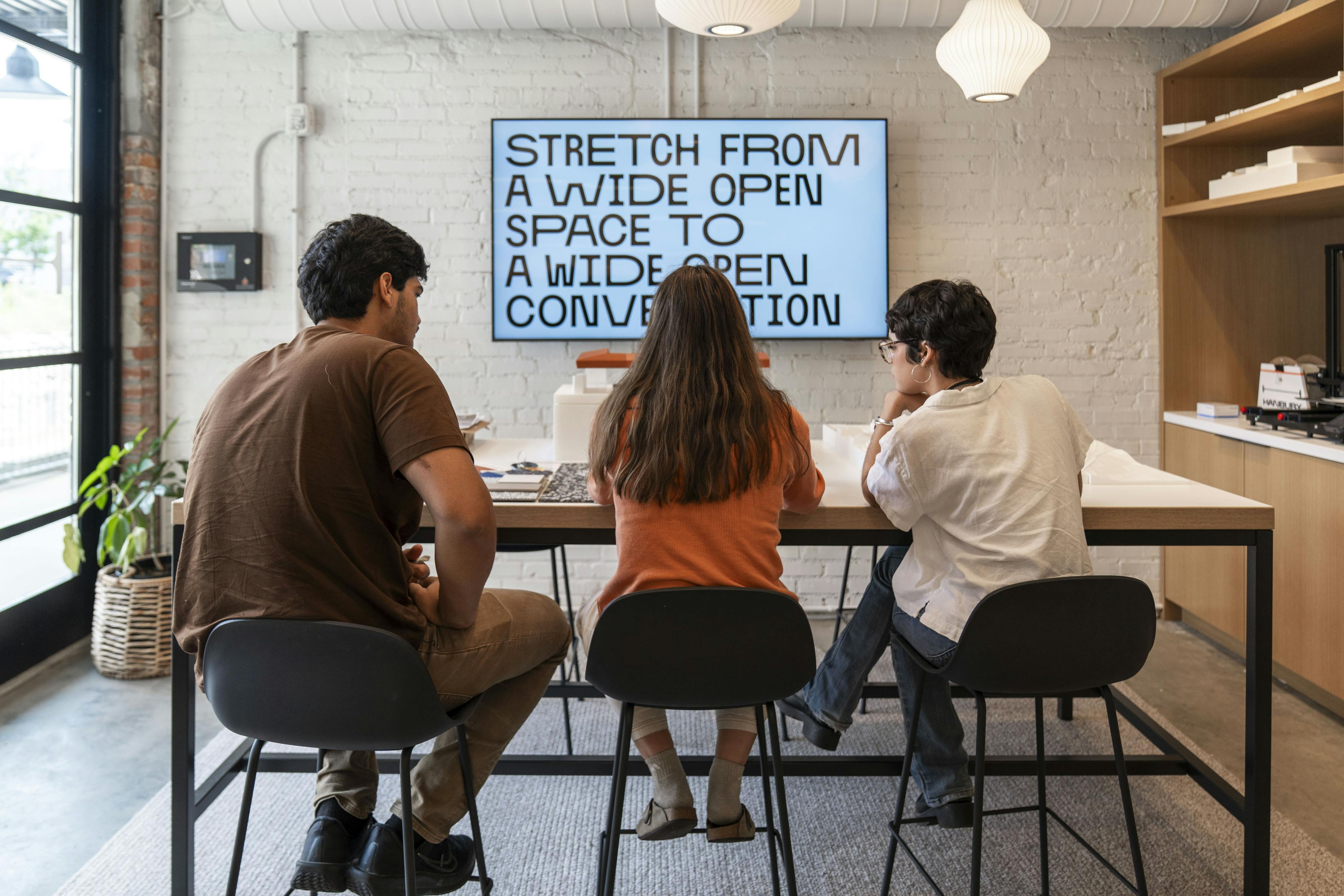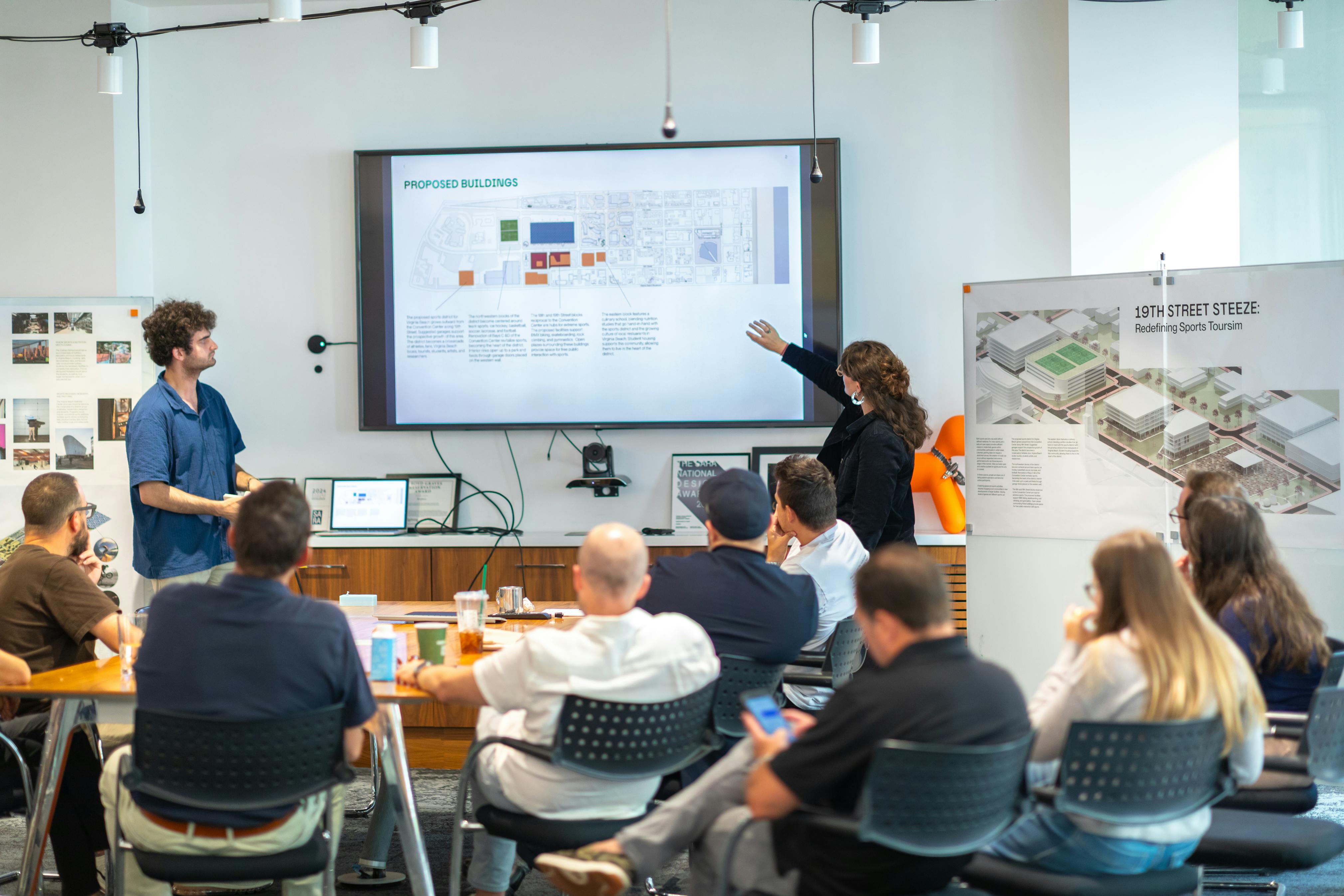

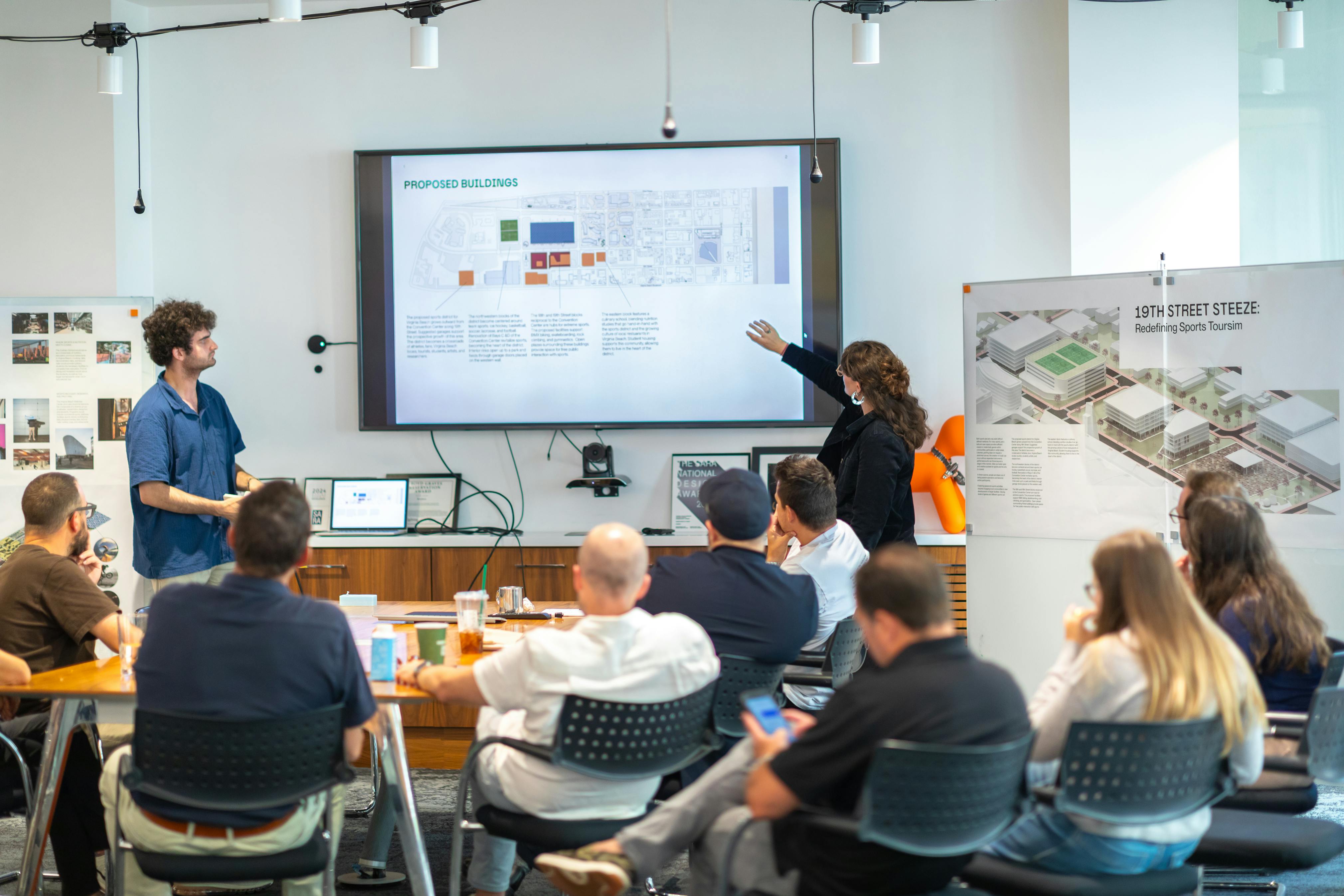

2025 Summer Scholars in Review
Every summer, Hanbury welcomes students from across the country to explore the intersection of research, design, and community impact. The Summer Scholar program is an exchange of ideas that strengthens both the firm and the cities where projects take root. This year’s efforts stretched across Norfolk, Richmond, Baltimore, Grand Rapids, and Clemson, each addressing real challenges through bold yet pragmatic design proposals.
Scholar Group: Matthew Watson, Marie Zenzie
Team Leads: David Keith, Alec Yuzhbabenko, Adam Schultz, Rob Reis
Client/Partners: City of Virginia Beach, Resort Advisory Commission, ViBe Creative District
In Virginia Beach’s Resort District, the team extended two years of prior research to envision an expanded sports district anchored at the convention center and woven into the culinary and arts experiences of the nearby ViBe District. The proposal reestablishes the city’s identity around both team sports and extreme sports culture, creating a destination where those experiences intersect. Central to the plan is the “Yellow Brick Road,” a resort loop introduced by last summer’s scholars and reimagined as a connective thread that links the activity of the boardwalk and the VB Trail to the city’s eclectic neighborhoods, interlacing recreation, entertainment, and culture into a cohesive experience.
Scholar Group: Nina Accousti, Luke Esparza
Team Leads: Rick Fischl, Cam Fullmer, KJ Ammon
Client/Partners: City of Richmond Department of Parks and Recreation (James River Park System staff)
At the James River Park System’s Reedy Creek, trail operations and environmental education currently compete for limited space. The scholars reframed the site by proposing to relocate the facilities and trails crew to a space of their own, freeing up Reedy Creek for public engagement, ecological repair, and restoring the nature center back to its originally intended purpose.
Their master plan reimagines the area as a “learning landscape”, routing the Buttermilk Trail through a breezeway lined with education bays, introducing a riparian buffer and permeable walking paths at a CSO outfall, and retooling the Nature Center to provide a clearer welcome, safer circulation, and flexible indoor/outdoor learning.
Scholar Group: Mason Chizhik, Ally Hagyard
Team Leads: Ross Smith, Danasha Kelly, Teddy Levy
Client/Partner: CLLCTIVLY
Baltimore’s vacant housing crisis has persisted for decades, leaving many neighborhoods struggling with disinvestment and instability. This summer, the team studied the history of vacancy along W. North Avenue and examined strategies to restore dignity, stability, and vibrancy on a block-wide scale.
After reviewing holistic, whole-block approaches, the proposal focused on a cluster of five connected rowhomes reimagined as a layered community hub for Black-led nonprofits and entrepreneurs within the CLLCTIVLY ecosystem. By opening party walls, enhancing daylight and access, and sequencing activities from an active public corner to more focused upper levels, the design creates spaces that balance work, support, and social life. Programs including retail and café space, wellness areas, huddle rooms, and event venues are connected through a “day-in-the-life” narrative that reflects the rhythms of community life.
Scholar Group: Anna Deyoung, Leah Steele
Team Leads: Krista Vanhoutteghem, Doug Campbell
Client / Partners: Downtown Grand Rapids Inc. (DGRI) and the City of Grand Rapids
In Grand Rapids, the team collaborated closely with DGRI and the City of Grand Rapids through a series of meetings and feedback sessions to explore how small businesses could benefit from a pop-up retail concept to launch and grow their operations. Their response was a compact, adaptable business incubator shed designed to relocate to prominent city locations, activating public spaces with citizen entrepreneurs.
Each modular shed functions as a portable business incubator unit, capable of hinging open in three different modes, allowing vendors to tailor their space to context, need, and identity. Deployed across multiple sites, the incubators lower barriers to entry while amplifying equity, flexibility, and local entrepreneurship. DGRI, the City of Grand Rapids, and Next Step plan to build several of these business incubators in the coming months.
Scholar: Parker Trost
Team Lead: Kendall Roberts
Client/Partner: City of Abbeville, South Carolina
In Abbeville, South Carolina, the project addressed both the charm and the challenges of a small Southern town facing decades of gradual population decline. With the city’s 10-year comprehensive plan aiming to grow from 4,800 residents back to 6,000, the work focused on how design could help leverage existing assets and catalyze new development.
The proposal reimagined the city block fronting the town square between Trinity Street and West Pickens Street as an active contributor to downtown life. By transforming underutilized parcels into places for gathering, commerce, and community, the project sought to shift the conversation from Why here? to What if? and position design as both a vision and a catalyst for change in Abbeville’s future.
As these ideas move beyond the studio, many will inform live projects, community partnerships, and pilot initiatives. For Hanbury, the Summer Scholar program is a catalyst for new ways of thinking, shaped by the curiosity of the next generation of designers.
